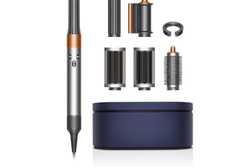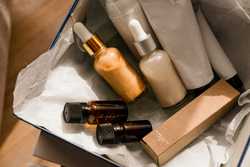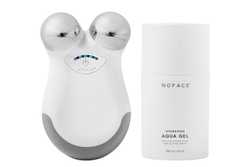What is Premature Aging?


Our evaluations and opinions are not influenced by our advertising relationships, but we may earn a commission from our partners’ links. This content is created by TIME Stamped, under TIME’s direction and produced in accordance with TIME’s editorial guidelines and overseen by TIME’s editorial staff. Learn more about it.
Many factors influence how a person ages, such as genetics, overall health and wellness, stress, and even inflammation. Aging is a natural part of life, but some individuals are prone to premature aging, often due to lifestyle and environmental stressors according to the Cleveland Clinic and other health experts.
You cannot stop Mother Nature, but there are ways to improve your health as you grow older and, in some cases, reduce signs of premature aging.
Premature aging symptoms in your skin may include:
For some people, hair loss is an indicator of premature aging, often caused by genetics. Premature graying or whitening of hair may be considered by some a sign of premature aging.
Premature aging may show up as weight loss in the face, such as hollowed-out cheeks.
As your skin ages, it becomes thinner, less smooth, and plump. Wrinkles, fine lines, and age spots start to appear, and veins may become more prominent as well.
Older skin often becomes drier with a “papery” appearance. It can become more susceptible to bruising, scrapes, or cuts, which could take longer to heal. Skin loses elasticity and collagen production as we age, which causes skin to look less plump and less hydrated.
Using a quality high-SPF lotion or cream to protect against not only the sun’s UVA and UVB rays but also blue light, and exposure to pollution, is key to preventing premature facial aging. The American Academy of Dermatology Association (AAD) recommends a water-resistant product with an SPF of 30 or higher be reapplied every two hours for maximum protection. And don’t neglect your neck and the rest of your body, which needs sun protection as well.
Hydration and sleep, plus quitting smoking if you smoke, can all help prevent premature aging of the face. Products like anti-aging cream and LED face masks can be used as well.
“When recommending body creams for aging skin, every skin is different, but for me, it's important to focus on ingredients that address common concerns such as dryness, loss of elasticity, thinning skin, and the appearance of wrinkles and age spots,” says cosmetic physician Vivian Chin, MD, MPH, founder of Koru Wellness & Aesthetics NYC. “I would make sure to look for ingredients like exfoliating enzymes, glycolic acid (or AHAS), hyaluronic acid, and butter, like shea and others.”
“Body care is a different ball game than traditional skincare. Make sure your products were designed for and tested on body skin. And products with sunscreen, of course, especially hand creams to stave off age spots. I prefer a mix of organic and inorganic sunscreen filters to get every bit of protection available,” shares Jessie Reder, senior vice president of product development at MAËLYS Cosmetics, who says it’s possible to help prevent topical and early signs of premature aging. But she adds, “The hardest part to see real improvement is in firming, so you really want to address saggy skin-prone areas diligently.”
Reder recommends using peptides, topical vitamin C, and skin care basics at a young age, and save the retinol creams, glycolics, laser treatments, and more invasive or exfoliating technologies for later in life.
Read, Also: Tretinoin vs Retinol: Which is Best for You?
Some areas more susceptible to premature aging include the neck, upper chest—also known as the French word “decolletage”—and the backs of the hands. While many face products contain sunscreen, body products may not.
“To treat premature aging in areas like this, sunscreen is a must, in addition to an anti-aging serum or cream applied twice daily, which can really bring improvement,” says Reder. “When we conduct clinicals on demographics with early signs of aging, say, 20 to 35, we really see an improvement in the look of firming and fine lines on the neck and decolletage.”
Reder suggests looking for products that include peptides and hyaluronic acid because they are “easily recognized by our skin, [and] have consistently demonstrated amazing clinical results when we test them.” Working in product development means Reder has first-hand experience with what works and what doesn't.
“One of my favorite products [we’ve created] for this area is the MAËLYS’ B-POISED. It’s formulated to smooth the look of lines and wrinkles in the décolleté, while helping to tighten and contour the area,” she suggests. (Décolleté is the French word for cleavage.) “You apply it, and you can feel this security blanket of tightening and lifting. The long term results I have seen on myself and our clinical participants has been really striking, with twice daily diligent use.”
“My other go-to is MAËLYS B-GLOSSY Smoothing Body Serum which uses palmitoyl tripeptide-1 and palmitoyl tetrapetide-7 to reduce the look of wrinkles, and also stimulate your skin’s repair process,” she says. “This is actually one of the most powerful peptides that I have come across — it is clinically proven to support collagen, address UV damaged skin, loss of elasticity, and dull looking skin.” Reder uses these products in the morning and at night, plus keeps one in her desk to reapply to the backs of her hands.
Smoking, drinking too much alcohol, lack of exercise, an unhealthy diet, and stress may all contribute to premature aging. Lack of sleep can also play a role in premature aging, as skin cells regenerate at night when we are at rest.
Dark circles and eye redness, two physical outcomes of not getting enough shut-eye, can also make someone look prematurely old.
According to the U.S. Environmental Protection Agency, “Chronic overexposure to the sun can change the texture and weaken the elasticity of the skin. Sun-induced skin damage causes premature wrinkling, sags and bags, and easy bruising. Up to 90% of the visible changes commonly attributed to aging may be caused by sun exposure.” In addition, environmental pollutants can harm and potentially prematurely age your skin.
Dr. Chin recommends using products with antioxidants and ingredients like green tea extract, resveratrol, and coenzyme Q10 that “can help protect the skin from environmental damage and reduce the signs of aging.”
Some people are prone to premature aging due to genetics, like graying hair or hair loss at an early age. Serious medical reasons may also cause accelerated aging, such as progeria, a very rare genetic disorder that begins in the first two years of a child’s life, considerably shortening their life span.
Genetics can also play a role in neck and decolletage areas, says Reder. “I’ve seen people at 60 with no lines on their forehead, but significant loose skin in the jowl area—as if gravity smooths their skin by pulling it down. Other [people] may have deep furrows in their forehead or eye area due to the strength of their facial muscles. Sun and pollution exposure has more of a topical effect and will cause age spots and texture breakdown, giving that ‘aged’ look,” she adds.
Reder says it is a mix. “We use ingredients that have been clinically proven on body concerns, such as the look of cellulite, and pair them with the tried and trues like I mentioned above—peptides and hyaluronic acid. The way that I formulate differently for the body, compared to face, is in the texture and delivery system,” she says.
“I will often design a ‘scaffolding effect’ that is much stronger on the neck and decolletage area than I would make for the face. Our body is more active than our face as well, so we make formulas that can withstand some traffic—putting your jeans on over your booty, hourly hand washing, or the waistband of your pants rubbing against your belly. These formulas have to perform all day,” Reder explains
No. You can’t reverse the aging process, but you can try to slow it down. There are procedures, like facelifts, dermal fillers, and skin care techniques like resurfacing, which can all help you appear more youthful, but they don’t stop the aging process.
You can improve your health and wellness, as well as look and feel good, by:
If you’re worried about premature aging symptoms, reach out to your healthcare provider to discuss your concerns.
In addition, speaking to a dermatologist about how to select anti-aging skin care products for your skin type can be helpful if you are finding more wrinkles and sunspots than usual.
You can’t stop Mother Nature, but if you’re worried about premature aging, there are steps you can take to help you stay healthy as you age.
The information presented here is created by TIME Stamped and overseen by TIME editorial staff. To learn more, see our About Us page.



